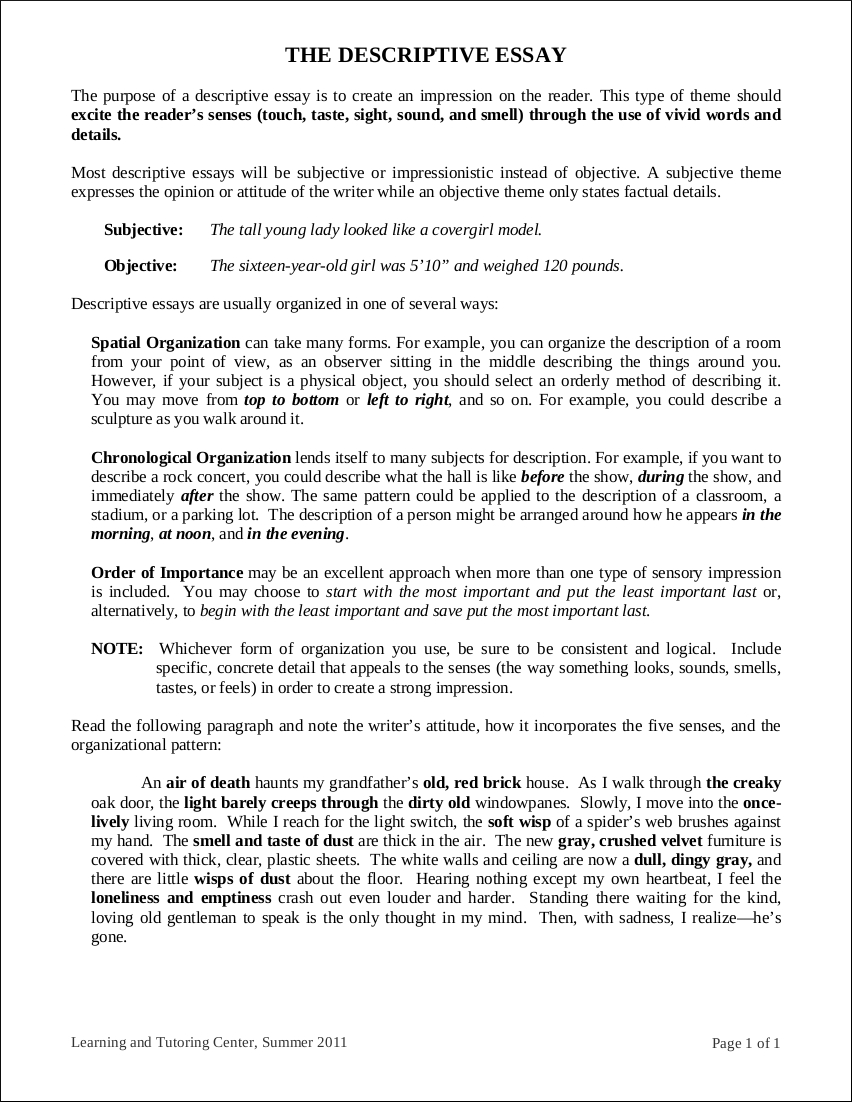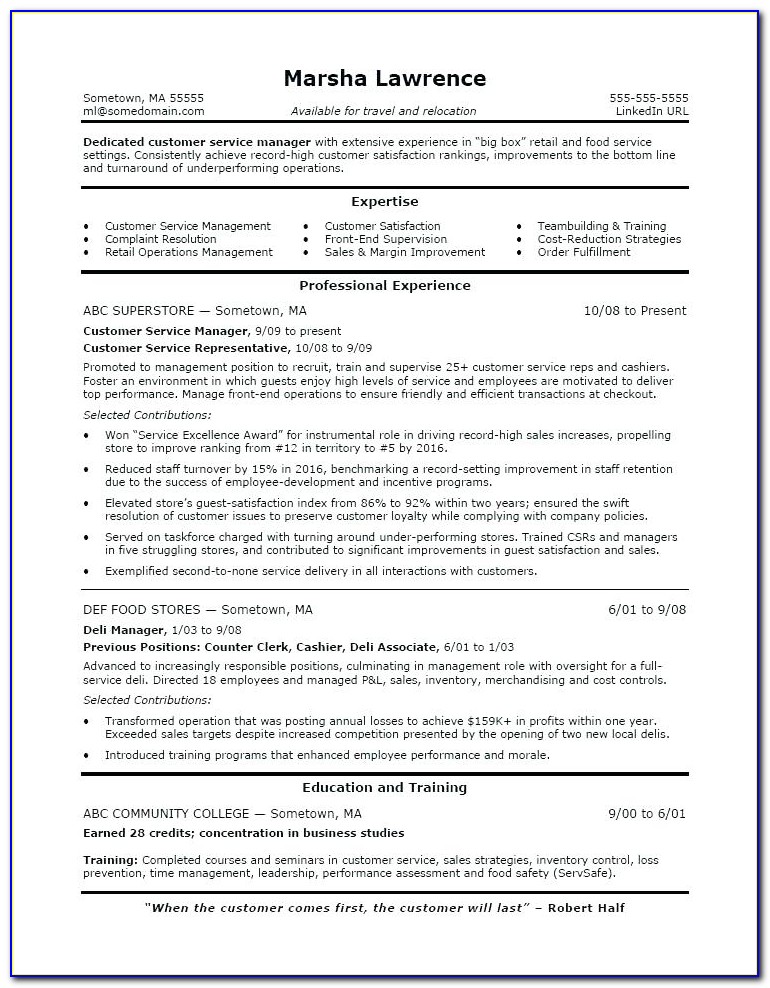
· Some interesting topics for a descriptive thesis are the following: Include details. Don’t settle assuming that your thesis statement will be sound as it is. You need to make it even better by including some descriptive details. You can insert some adjectives and figurative details to add finesse to the statement · In descriptive essays, the thesis usually takes up one full sentence. 3 body paragraphs. Three body paragraphs should have evidences that will prove your thesis For a descriptive essay, it is very important that you choose a topic that is vast enough to allow you to express freely. Also, make sure that the topic you choose is not overdone. An overdone will not grab the attention of your intended audience. 2. Create a Strong Thesis Statement. A thesis statement is the essence of any academic writing
Descriptive Essays // Purdue Writing Lab
A descriptive thesis examines a phenomena, group of people, idea or theory with a particular focus on facts and descriptive thesis of the subject.
A descriptive thesis should be unbiased. Your goal is to collect factual evidence and information that give your reader a comprehensive perception of your subject. Writing a descriptive thesis can be one of descriptive thesis most challenging types of thesis papers because of its reliance on unbiased perception.
Descriptive thesis are commonly used in analyzing people, descriptive thesis, though they may be used in other sciences as well. The purpose of a descriptive thesis is to provide an accurate account of a subject at the time of your research, descriptive thesis.
If your subject changes after your research, your thesis remains an descriptive thesis of your subject during the time of your observation. Also, your goal is to provide evidence and observations that test your hypothesis. This may entail gathering enough evidence to support or deny your hypothesis statement, descriptive thesis, or providing evidence that answers multiple questions about the nature of your subject.
Within your thesis, you will establish a test to determine descriptive thesis you can answer your hypothesis. For instance, your test may require that you demonstrate a number of particular psychological symptoms to prove a test diagnosis, descriptive thesis. A descriptive thesis focuses on your use of senses. This includes describing the physical sensations you experience while observing your subject.
Unlike other thesis types, you should avoid any early analysis of descriptive thesis sense information. As an example, you should avoid suggesting that your subject is depressed, as this is a diagnosis. Instead, note that your subject is withdrawn, quiet, showing sad emotions or prone to emotional outbursts.
You can use the sense information for your diagnosis and analysis later in your research, or possibly arrive at a diagnosis that is entirely different than depression. A descriptive thesis requires a declarative style, stating a series of facts and descriptions. Your reader should be able to read your thesis, examine your facts and devise her own diagnosis based on your observations, which may or may not coincide with your later analysis.
Your description should be clear enough for your reader to make her own assertions as she reads. Your reader should be able to question your later analysis, conclusions and the test you use to generate your conclusion, but you should present your facts and descriptions clearly enough that your reader cannot dispute them.
Avoid any sense of bias in your descriptive thesis. You can observe and record descriptive thesis facts without providing any internal analysis about their meaning.
Emotional phrases, or words that relate your feelings about what you see, are irrelevant in a descriptive thesis. If you describe the scene as you see it, your reader should experience the same emotional feelings you witnessed in yourself. Kristyn Hammond has been teaching freshman college composition at the university level since She has experience teaching developmental writing, freshman composition, and freshman composition and research.
Regardless of how old we are, we never stop learning. Classroom is the educational resource for people of all ages. Based on the Word Net lexical database for the English Language.
See disclaimer. Descriptive Method on a Thesis KRISTYN HAMMOND 25 JUN CLASS. Explore this article Purpose of a Descriptive Thesis Writing Technique Elements of a Thesis Things to Avoid, descriptive thesis. references 1 Prof Essays: Descriptive Thesis 2 Research Paper Star: Preparing a Descriptive Thesis 3 Thesis Works: Sample Descriptive Research Descriptive thesis. About the Author Kristyn Hammond has been teaching freshman college composition at the university level since Related Articles.
Classroom About Descriptive thesis Feedback Legal Accessibility Terms of Use Privacy Policy Copyright Policy Manage Preferences.
What is DESCRIPTIVE RESEARCH? What does DESCRIPTIVE RESEARCH mean? DESCRIPTIVE RESEARCH meaning
, time: 2:19Descriptive Method on a Thesis | Synonym

· In descriptive essays, the thesis usually takes up one full sentence. 3 body paragraphs. Three body paragraphs should have evidences that will prove your thesis The descriptive essay is a genre of essay that asks the student to describe something—object, person, place, experience, emotion, situation, etc. This genre encourages the student’s ability to create a written account of a particular experience A descriptive thesis is a paper that contains a detailed description of people, events, processes, emotions etc. It demonstrates the object as it is in fact. In contrast to a prescriptive thesis that exposes the things how they should be. So a descriptive thesis must be realistic as much as possible. The student uses all the methods to engage reader’s imagination such as a big number of adjectives and arguments

No comments:
Post a Comment